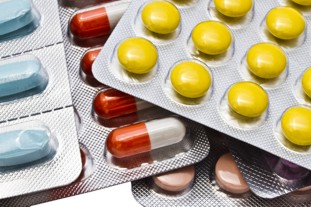Source: Valor Econômico - 27/11/2012
The Senate Constitution and Justice Commission (CCJ) yesterday unanimously approved a proposal for a constitutional amendment (PEC) by Senator Paulo Bauer (PSDB-SC) that grants tax immunity to the drug production chain. PEC 115 now goes to the Senate floor, where, to be approved, it needs to receive favorable votes from three fifths of the 81 senators, in two rounds of voting.
Bauer said he will ask Senate President José Sarney (PMDB-AP) for the bill to be put on the agenda soon. "As it is the end of the year we may have some difficulties, but as this is a subject of great popular appeal, it is possible to create this possibility", he said. The tax waiver estimated with this measure is around R $ 17 billion. The Federal Revenue Service and the Ministry of Finance declined to comment on the approved constitutional amendment.
But Valor found that the government is completely against the proposal. The approval in the CCJ was more “a blind eye” than a “nap” of government senators. The government's strategy would be to block the bill in the Chamber, since the cost of fighting against such a proposal is higher in the Senate.
The government is against tax immunity, first, because of the loss of revenue, and then because the proposal could stir up discussions about favoring one state or another at a time when the government is trying to end the fiscal war, seeking to unify circulation tax rates. of Goods and Services (ICMS).
Technical note from the Ministry of Health, made at the request of Senator Bauer, raises data on the sector and shows that the tax burden on medicines in Brazil is around 34% on average, against 21% in Argentina, 6% in the Kingdom United Kingdom and 3% in France. Zero tax on the sector is a fact in the United States, Mexico and Canada. The world average is 6%.
The technical note also presents data from Ibope indicating that the drug market is expected to turn over R $ 63 billion in 2012. The main consumers will be in classes “B” and “C” demanding 80%.
The Ministry's opinion also points out, based on ISM Health data, that 71,4% of the disbursement for medicines is made directly by the population. In Europe, this percentage is 10% to 15%.
This happens even with the increase in the distribution of medicines by the government in recent years. IBGE data, compiled by the ministry, show that in 2009 - the last available survey - the government spent R $ 6 billion on medicines, while the population disbursed R $ 56 billion.
Both the Union of the Pharmaceutical Products Industry in the State of São Paulo (Sindusfarma) and the Association of the Pharmaceutical Research Industry (Interfarma) are favorable to such a project.
The chief executive of Sindusfarma, Nelson Mussolini, recalls that there is no way that the tax exemption does not reach the final consumer, since there is specific legislation that any tax reduction on medication is automatically passed on.
According to the executive president of Interfarma, Antônio Britto, there is a clear problem of access to medicines in the country. “We have reached the limit of this situation. Access is prevented due to taxation and this generates costs for the government ”, said Britto, noting that 54% of Brazilians do not undergo medical treatment as they should and one of the reasons is the price of medicines.
“The government selectively exempted automakers, white goods and other sectors. We hope that President Dilma and Minister Guido Mantega will have the sensitivity to evaluate drug issues, ”says Britto.
Britto further explains that among the largest share of these taxes is state. In Paraná, as always mentioned in these discussions, the rate has fallen from 18% to 12% since April 2009 and the government has seen an increase in revenue due to higher consumption. The highest tax on the sector is in Rio de Janeiro, with a rate of 19%. The experience adopted in Paraná is cited in the technical note from the Ministry of Health on PEC 115.
The conclusion of the technical note says that the proposal "is of paramount importance and extremely necessary". However, as it deals with tax exemption, it should consider the risk that a possible tax waiver may not translate into a reduction in resources destined to the Unified Health System (SUS). For the technicians of the Ministry of Health, it seems “more appropriate” the partial reduction of taxes, notably in the ICMS, as this would not bring much interference in the base revenue of the States.
"There remains the suggestion for a more in-depth study, which requires access to primary data, especially collection data, so that the fiscal impact of such a measure can be more accurately estimated", concludes the technical note suggesting that Fazenda and Anvisa also evaluate the question.




